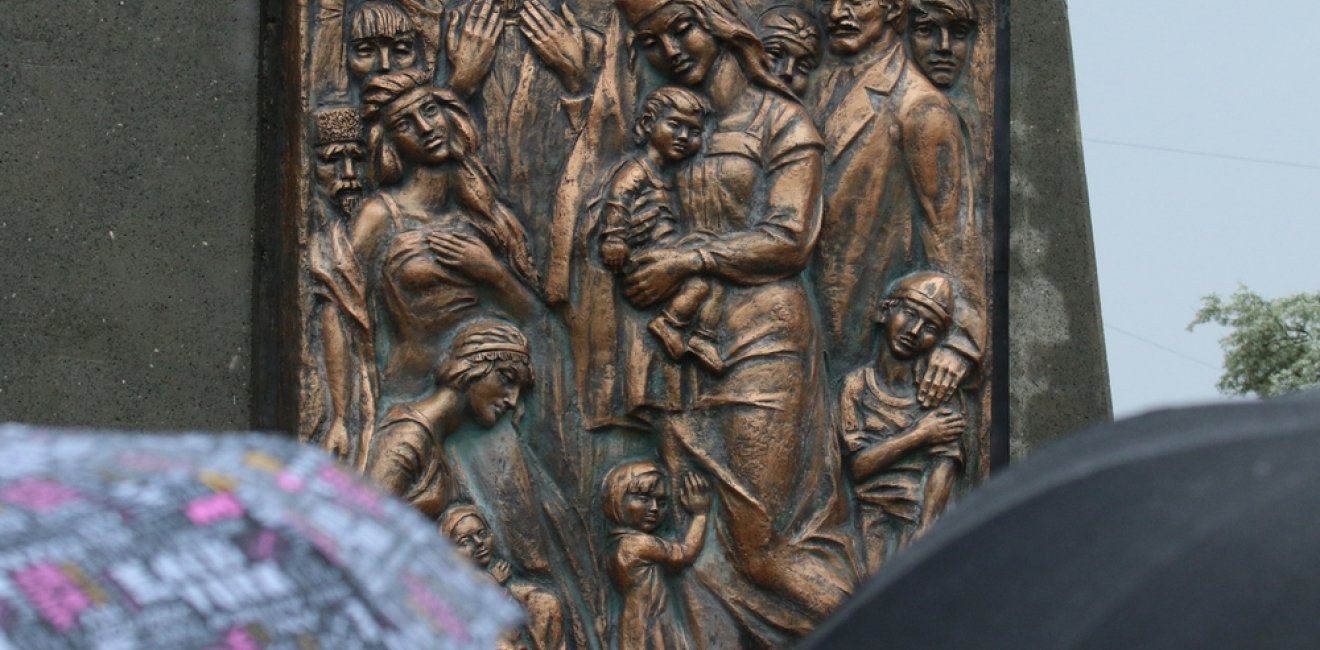
A blog of the Wilson Center

Vladimir Putin has described Crimea as Russia’s “center of spiritual unity.” In reality, it has been home to more than 100 nationalities, and was brutally “Russified” by Joseph Stalin in the 1940s.
One of those nationalities, the Crimean Tatars, have called the peninsula home for many centuries. They remained there even after Catherine the Great’s victory over Ottoman forces in 1783.
But in 1944, Joseph Stalin formally ordered the deportation of the entire Crimean Tatar community (roughly 200,000 in number), falsely accusing them of collaborating with the Nazis. Stalin’s government forcibly loaded most onto freight cars bound for Central Asia, where they were to be resettled. Reports suggest that nearly half of the deported died during the ordeal. Ukraine, Latvia, Lithuania, and Canada have all formally recognized Stalin’s brutal deportation as a crime of genocide or cultural genocide.
During this same period, the Soviet Union adopted a policy of “Russification” for the peninsula. Crimea was “Russified”: Any study of the Tatar’s native language was banned, ancient Tatar names were erased, Tatar books were burned, and their mosques were destroyed.
The next chapter in the saga occurred in the 1950s when Nikita Khrushchev transferred Crimea from Soviet Russia to Soviet Ukraine, ostensibly for administrative reasons. Tatar families were formally permitted to return to Crimea in 1967, and a few hundred families did over the following decade. They began moving back in larger numbers during the 1980s and 90s. In fact, by 1991, more than 150,000 Tatars had returned. But after the collapse of the Soviet Union, Crimea was suddenly a part of a new, separate country, to which several prominent Russian politicians vehemently objected.
Tatar fortunes took yet another dark turn when Russian forces moved to occupy Crimea in 2014. The occupiers immediately began a campaign of persecution against the Tatar community, “outlawing” the Crimean Tatar representative body (the Mejlis) and shutting down a Tatar television channel. The State Department subsequently has cited numerous human rights violations against the Tatar population, including torture, disappearances, and psychiatric abuse. Moreover, since the Russian occupation in 2014, about 10% of Tatars have fled to mainland Ukraine. Many of them have settled in Kherson—another Ukrainian city currently under threat by Russian forces.
Given the legacy of brutal treatment of Crimean Tatars and other nationalities by the Kremlin, President Putin’s reference to Crimea as Russia’s “spiritual holy land,” serves as a chilling reminder of what President Zelenskyy is up against.
Author

Explore More in Stubborn Things
Browse Stubborn Things
Spying on Poachers

China and the Chocolate Factory

India: Economic Growth, Environmental Realities
